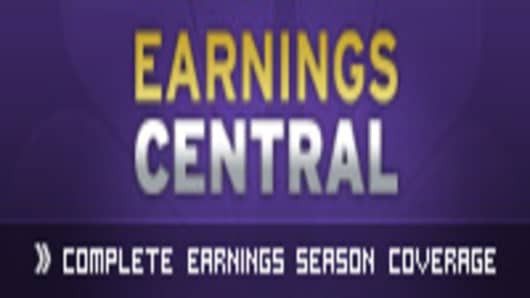U.S. futures , sideways overnight, wilted at 3 a.m. ET...about the time Europe opened.
Coincidence? I don't think so. Traders look for patterns, and repeat the trading pattern that works...until it doesn't. In the last couple weeks, if you shorted stocks right before Europe opened...and covered when it closed...you'd have a nice profit.
Mr. Trichet, head of the European Central Bank, declined to raise rates in Europe, but also indicated they were in the market buying Irish and Portugese debt.That helped rally the euro off its lows.
Elsewhere:
1. July retail sales: Good, but many landmines. Overall comp store sales were up 5 percent, better than expectations of 4.7 percent, according to RetailMetrics, the seventh straight month sales have beat expectations. The downside: Fewer companies are reporting than a year ago.
Here's the problem: Wall Street wants sales, not just good inventory management. Look at Kohl's trading down nearly 5 percent. July sales down 4.6 percent, much worse than the 3.6 percent gain expected, the good news is they are guiding higher for the second quarter, $1.07 to $1.08 a share, previous guidance 96 cents to $1.02 per share. Huh? Sales are disappointing, but they are getting better gross margins. Street's not buying it.
Look at Gap which posted a terrible sales number—down 5 percent—but then raised guidance a bit for the second quarter. Trading down 3 percent.
Aeropostale was just outright lousy. Second-quarter same-store sales decreased 14 percent, about twice expected...lower sales and margins. It's now expecting earnings between 2 cents and 3 cents a share, prior guidance was 11 cents to 16 cents a share.
There was some bright spots: Ross sales up 7 percent and raised guidance, WetSeal and Limited had good numbers as well.
The question for back-to-school and Fall: To what extent will consumers buy full price?
2. General Motorshandily beat estimates ($1.54 a share vs. $1.20 a share consensus). It was an excellent report all-round: Significant increase in global market share, higher prices, lower incentives. Revenue grew 19 percent, more than expected, as it increased its market share to 12.2 percent from 11.6 percent a year ago. The company did caution that its second half adjusted earnings would be "modestly" lower than first half results. Shares are still at its lowest levels since its $33 initial public offering pricing in November.



